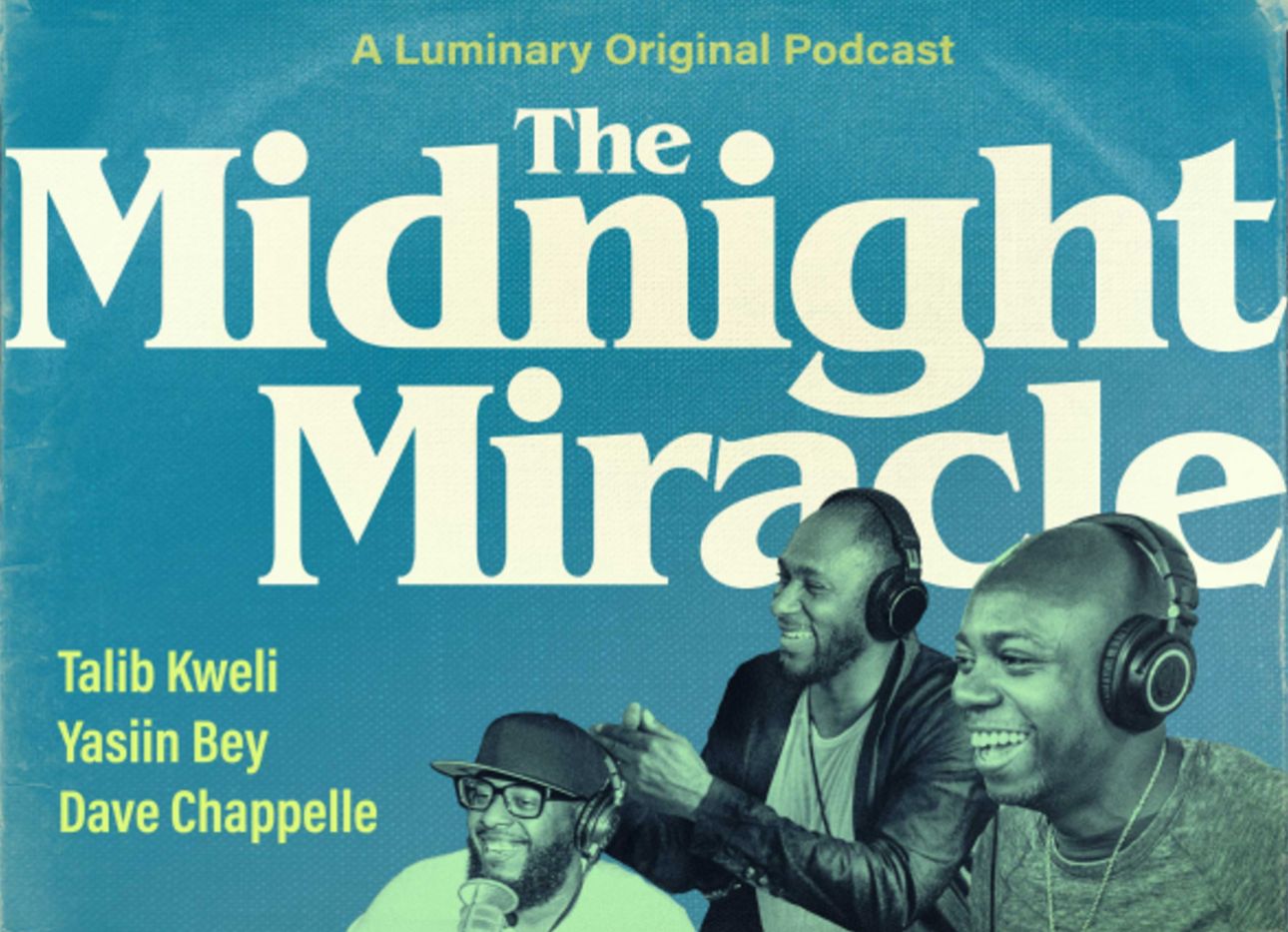
Dave Chappelle’s New Podcast
In West Africa, legendary tales have been passed down for centuries by griots, storytellers who are also poets, historians, genealogists, and musicians. A deeply respected speaker, the griot is tasked with memorizing and retelling—sometimes with the addition of new details that relate to the lives of a modern audience—the histories of a tribe and the specific families within it. It’s a means to not only control the narrative, but to share the wisdom of the past, in the hopes that it bears some fruit of understanding for the next generation.
In many ways, the griot is an early version of the Black entertainers we know today, who at once exist as cultural ambassadors and traffic in the specificity of their lived experiences, using them as material for whatever commentary they choose to reach the masses. One recent interpretation of oral storytelling is The Midnight Miracle podcast, hosted by comedian Dave Chappelle and his two longtime friends, hip-hop heavyweights Talib Kweli and Yasiin Bey (the latter formerly known as Mos Def), and anchored by jokes, anecdotes, and candid conversations. Equal parts salon and variety show, the podcast was recorded in Chappelle’s hometown of Dayton, Ohio, last summer. It brazenly does away with typical podcast conventions such as introductions, chapters, or themes, opting for a more psychedelic listening experience that wanders from story to story, punctuated by meticulously selected musical tracks. (The series is an ode to Chappelle’s love of music, and will later be released on vinyl.) For the raconteurs of this podcast, what makes a great story isn’t its structure, but its ability to help listeners understand its narrator’s world.
The program’s topics range from the history of cornflakes to death, which Bey describes by recounting his friendship with the late singer Amy Winehouse while she was deep in addiction. Its inaugural episode consists of an abstract yet personal prayer, recited by Bey. “To the one who has created the all, you know us better than we know ourselves, and we know ourselves better than others know or pretend to know us,” he says. “Make us better than whatever they say. And do not make us responsible for whatever they say. Amen.” In the series’s next show, “Round Midnight,” Chapelle recalls the second time he did mushrooms, taking listeners on an Alice in Wonderland–like trip, interspersed with laugh tracks and jazz music, through New York’s Central Park, where he gets in a horse and buggy for several hours, only to end up at a comedy club where he performs at length.
But there’s a method to the madness: The show illustrates how different approaches to sharing one’s perspective can ultimately arrive at the same goal, which is to document history by privileging memory and experience over the “veracity” of text and logic. “Making a podcast isn’t the obvious next move for me, but it’s the right one,” Chappelle said in a statement. “The Midnight Miracle gives you a look into how me and my friends process the world around us, and I think it will change the way listeners think of what a podcast can be.”